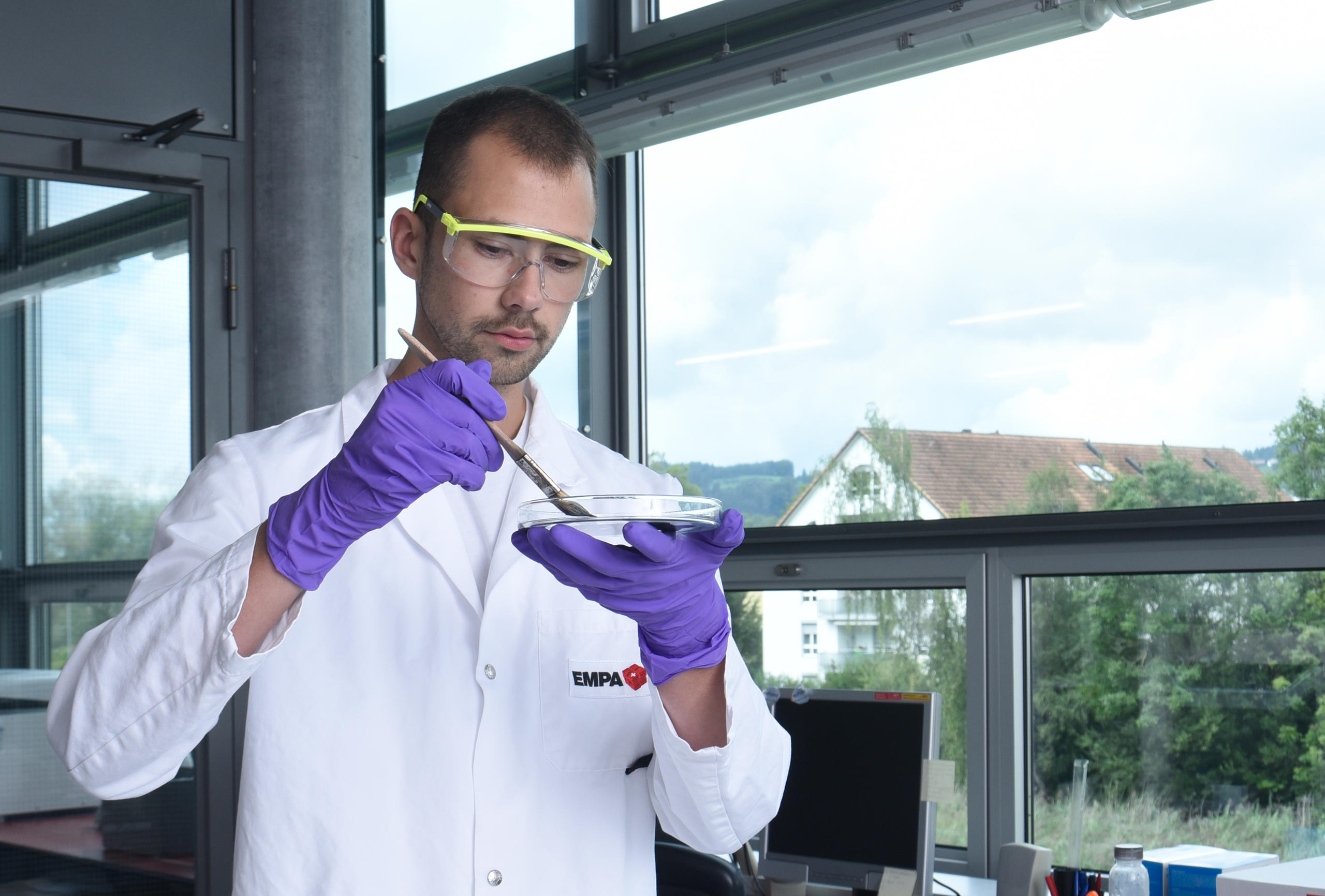
Swiss researchers develop method to extract “black gold” from fungi

Researchers at the Swiss Federal Laboratories for Materials Science and Technology (EMPA) have developed a simple method to extract natural melanin from mushrooms also known as "black gold". This unlocks new opportunities to create new materials and protect natural materials like wood.
The pigment melanin protects an organism from environmental stress. As an example, our skin darkens when exposed to the sun because melanin protects human skin from harmful UV light. In other organisms, such as fungi, melanin has a range of other properties.
Until now though, the processes for extracting natural melanin from microorganisms have yielded small quantities, which is why it is much more expensive than gold – giving it the name “black gold”.
In search of a simple and cheap process of producing natural melanin in large quantities, a team from Empa came across a fungus that grows in the forest called Armillaria cepistipes. Its metabolism enables the fungus to bind heavy metals, make wood glow in the dark and produce 1,000 times more melanin than other fungi. The researchers cultivated the fungus in a nutrient field with a precursor, tyrosine, which causes the fungus to release melanin into the environment. In three months, the Armillaria produces around 20 grams of melanin.
The discovery unlocks a range of opportunities to develop innovative materials such as new types of water filters. By integrating melanin into artificial polymers that are then spun into membranes have shown to remove up to 94% of lead from polluted water.
“Melanin is extremely stable when exposed to environmental influences and is interesting not only as a pigment, but also far beyond for the development of innovative composite materials,” said Empa researcher Francis Schwarze from Empa’s “Cellulose & Wood Materials” lab.

Empa is now working with the University of Applied Sciences and Arts Northwestern Switzerland and the Basel Historical Museum, to use the melanin to reconstruct a rare wood wind instrument, the Serpentino. The curved snake-like shape of the instrument means that condensation from the musician’s breath creates a humid microclimate for bacteria and fungi to grow that can decompose the wood instrument. This is destroying the last original instruments that exist.
The hope is that using a protective wood impregnation based on melanin can help protect newly built serpentinos against decay. Other woodwind instruments built today using domestic, less resistant woods could also benefit from such an environmentally friendly wood treatment.

In compliance with the JTI standards
More: SWI swissinfo.ch certified by the Journalism Trust Initiative





























You can find an overview of ongoing debates with our journalists here . Please join us!
If you want to start a conversation about a topic raised in this article or want to report factual errors, email us at english@swissinfo.ch.